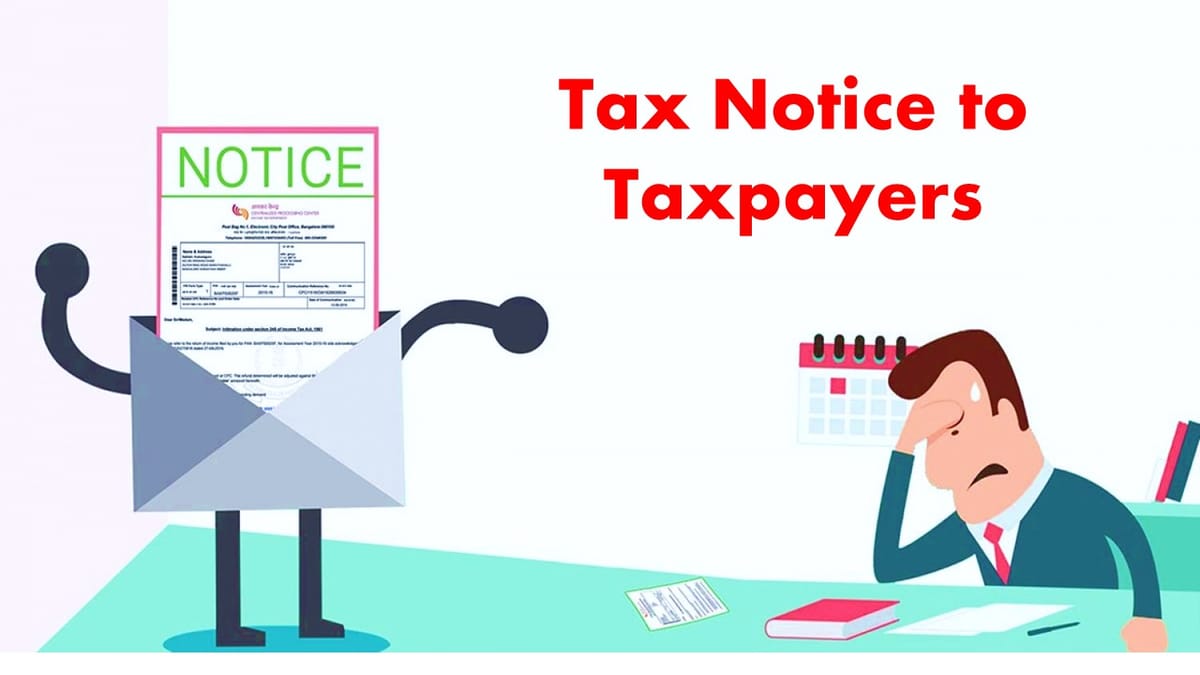Employees must notify their employers of their chosen tax regime at the start of the financial year, according to the Central Board of Direct Taxes (CBDT).
Reetu | May 1, 2023 |

Income Tax Regime: You can get Notice on Choosing wronTax Regime
Employees must notify their employers of their chosen tax regime at the start of the financial year, according to the Central Board of Direct Taxes (CBDT). If this is not done, employers may be required to withhold TDS on salary based on the New Tax Regime rates under Section 192. It should be emphasized, however, that the declaration submitted with the employer is not obligatory, as you can change your mind when filing your Income Tax Return (ITR).
“It should be noted that the declaration filed with the employer is not absolute, as the option is only exercised when the income tax return is filed. As a result, even if no declaration was given to the employer and taxes are deducted by the employer based on the default regime, i.e., the new tax regime, the taxpayer can choose to file an income tax return under the old tax regime,” stated Neeraj Agarwala, Partner, Nangia Andersen India.
However, suppose there is a discrepancy between the income reported by the employer and the income reported by the taxpayer in their income tax return. In that case, the taxpayer may receive an income tax notice from the tax department. “The taxpayer may receive an income tax notice from the tax department if there is a discrepancy between income reported by the employer and income reported by the taxpayer in their income tax return. In this case, the taxpayer should submit to the income tax department the documents that support the deductions, such as proof of investment under Section 80C, house interest payment, and so on,” said Agarwala.
For example, supposing an employee does not file a declaration with their employer (and thus the new tax system is chosen by default) and then claims a gross deduction under 80C and HRA when completing their income tax return. In this situation, the income reported on Form 26AS will not match the income reported on the tax return, and the employee may receive a system-generated alert requesting additional information.
According to a recent circular issued by the CBDT on April 5, if an employee does not inform the employer about his/her choice of tax regime, the employer may take TDS from salary at the rates prescribed for the default regime, i.e. New Tax Regime.
“If the employee gives no intimation, it will be assumed that the employee is still in the default tax regime and has not exercised the option to opt out of the new tax regime. As a result, in such a circumstance, the employer must deduct tax at source on income under section 192 of the Act at the rates specified in sub-section (IA) of section 115BAC of the Act,” the CBDT stated in the circular.
The CBDT has clarified that an employer must obtain information from each of its employees about their intended tax regime, whether it is the new regime (which offers low tax rates with no deductions for various allowances and investments, etc.) or the old regime (which allows deductions and allowances under certain sections of the Income Tax Act).
“In order to avoid the genuine hardship in such cases, the Board, in the exercise of powers conferred under section 119 of the Act, hereby directs that a deductor, being an employer, shall seek information from each of its employees having income under section 192 of the Act regarding their intended tax regime and each such employee shall intimate the same to the deductor regarding his intended tax regime for each year and upon intimation, the deductor shall compute his total income, and deduct tax at source thereon according to the option exercised,” CBDT said.
In case of any Doubt regarding Membership you can mail us at contact@studycafe.in
Join Studycafe's WhatsApp Group or Telegram Channel for Latest Updates on Government Job, Sarkari Naukri, Private Jobs, Income Tax, GST, Companies Act, Judgements and CA, CS, ICWA, and MUCH MORE!"